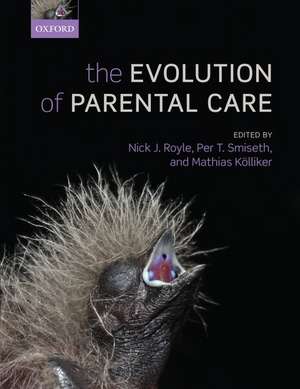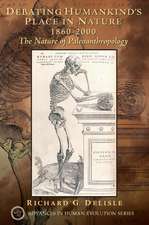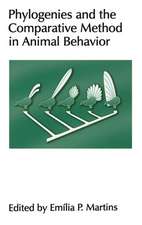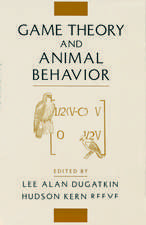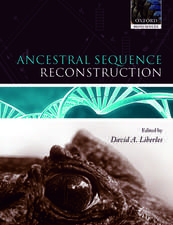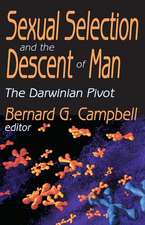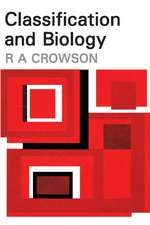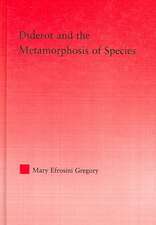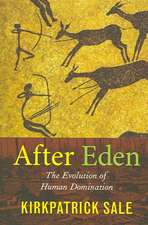The Evolution of Parental Care
Editat de Nick J. Royle, Per T. Smiseth Autor MathiasNOSSUB Köllikeren Limba Engleză Paperback – 8 aug 2012
Preț: 502.75 lei
Preț vechi: 593.21 lei
-15% Nou
Puncte Express: 754
Preț estimativ în valută:
96.21€ • 100.08$ • 79.43£
96.21€ • 100.08$ • 79.43£
Carte tipărită la comandă
Livrare economică 02-08 aprilie
Preluare comenzi: 021 569.72.76
Specificații
ISBN-13: 9780199692583
ISBN-10: 0199692580
Pagini: 376
Ilustrații: 50 black and white illustrations
Dimensiuni: 189 x 246 x 21 mm
Greutate: 0.73 kg
Editura: OUP OXFORD
Colecția OUP Oxford
Locul publicării:Oxford, United Kingdom
ISBN-10: 0199692580
Pagini: 376
Ilustrații: 50 black and white illustrations
Dimensiuni: 189 x 246 x 21 mm
Greutate: 0.73 kg
Editura: OUP OXFORD
Colecția OUP Oxford
Locul publicării:Oxford, United Kingdom
Recenzii
The content is a delight. The reader benefits from current theory as well as several interesting real-world examples of often stunning behaviors: one learns of the costs and benefits of care, which sex cares, and what kind of care to expect. Moreover, a fascinating exposé of care in different taxa will provide everyone with something new and mindboggling
Notă biografică
Nick Royle is a senior lecturer in behavioural ecology at the University of Exeter with research interests centred on early life-history effects, sexual selection and parental care. He uses both vertebrate and invertebrate model systems in the field and in the lab for his research, and has published papers on parental care in a variety of journals, including Ecology Letters, Functional Ecology, Nature and Proceedings of the Royal Society B. He is a section editor for the journal BMC Ecology. After completing his PhD in zoology at the University of Durham he was a postdoctoral research associate at Lancaster University, working on within-family conflicts of interest over parental care in birds. Following this he did further postdoctoral research, this time on resource allocation and sexual selection in fish at the University of Glasgow, before taking up a NERC research fellowship on conflicts over parental care and moving to the University of Exeter's Tremough campus in Cornwall.Per Smiseth is a lecturer in animal behaviour at The University of Edinburgh with research interests in the evolution and genetic basis of parental care and the resolution of within-family conflicts over parental care. He uses an experimental approach that focuses on the burying beetle Nicrophorus vespilloides, but he has a broad taxonomic background that includes work on parental care in birds and mammals. He has published papers on parental care in journal such as PNAS, Proceedings of the Royal Society B, The American Naturalist, Ecology, and Evolution. After finishing his PhD in Ethology at the Norwegian University of Science and Technology, he moved to The University of Manchester as a postdoctoral research associate to develop N. vespilloides as an insect model for studying within-family conflicts. Since this postdoc, he continued his work on N. vespilloides as a NERC research fellow at The University of Manchester, until he took up a position as a lecturer at The University of Edinburgh.Mathias Kölliker is an assistant professor in evolutionary biology at the University of Basel with research interests focusing on parent-offspring conflict and co-adaptation, and the genetic basis of social interactions. He uses mathematical modelling as well as experimental research in both the field and the lab, and has published papers on parental care and parent-offspring interactions in journals as, for example, The American Naturalist, Animal Behaviour, Behavioral Ecology, and Proceedings of the Royal Society B. After he finished his PhD in Evolutionary Ecology at the University of Bern he went as a postdoctoral research fellow to Indiana University in Bloomington, where he developed mathematical models of parent-offspring coadaptation and did experimental research on insect parental care and parent-offspring interactions. After this postdoc, he moved to the University of Basel to establish a research group working in these areas.
